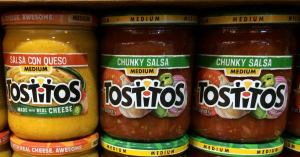The Food and Drug Administration (FDA) on Monday announced that it is ending emergency use authorization of chloroquine and hydroxychloroquine to treat hospitalized COVID-19 patients. The decision came after a request from Gary Disbrow, acting director of the Biomedical Advanced Research and Development Authority, with FDA chief scientist Denise Hinton stating in the Monday notice that the drugs were “unlikely to be effective in treating COVID-19 for the authorized uses in the EUA.”
In the notice, the FDA cited “new information, including clinical trial data results” for its decision. That new information led to the conclusion that not only may the drugs be ineffective against the coronavirus, but their “potential benefits for such use do not outweigh its known and potential risks.
Videos by PopCulture.com
The FDA had authorized emergency use of both chloroquine and hydroxychloroquine, both of which are approved to treat other ailments, including malaria, in March. The authorization meant that medical professionals would be able to treat patients hospitalized with Covid-19 with the drugs, despite that they had not yet been approved by the agency. In April, however, the FDA warned against using hydroxychloroquine and chloroquine to treat COVID-19 patients outside hospital or clinical trials. The warning, the FDA said, was due to a link between the drugs and “serious heart rhythm problems,” which would lead to death in some cases. Just a month later, in May, the World Health Organization (WHO) suspended clinical trials on hydroxychloroquine, citing a studied that analyzed 96,000 patients and found that those who were treated with hydroxychloroquine were more likely to develop heart arrhythmia, which could lead to cardiac arrest.
The drugs had been touted by President Donald Trump early on in his coronavirus response as a promising COVID-19 treatment. In early April, as the FDA issued its warning, the United States had begun stockpiling the drug. Trump later revealed that he had been “taking it for about a week and a half” as a precaution. Later addressing the claims and the concerns they prompted, his doctor, Physician to the President Sean P. Conley, said that they discussed evidence for and against hydroxychloroquine and “concluded the potential benefit from treatment outweighed the relative risk.”
News of the FDA’s decision to reverse its emergency use authorization comes as fears of a second wave of the coronavirus intensify. Although all 50 states have eased lockdowns, a number of states are seeing a rise in confirmed cases. Dr. Anthony Fauci, the director of the National Institute of Allergy and Infectious Diseases and the White House’s top doctor on the coronavirus task force, stated in late April that a second wave of the coronavirus in “inevitable” in the United States, though there is rising promise that a coronavirus vaccine could be available in the near future.





